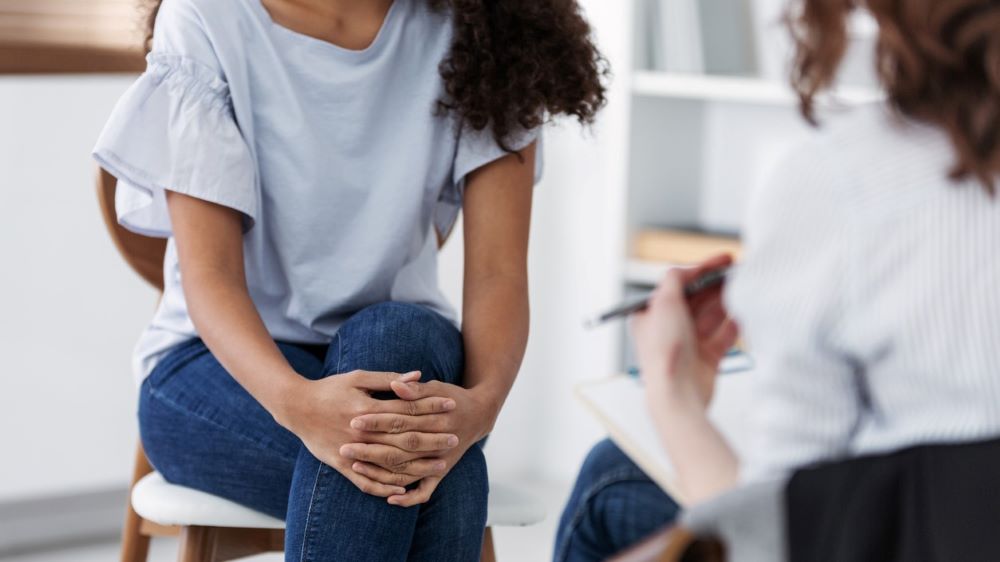Addressing vulvar pain begins with listening
The Program in Vulvar Health's multidisciplinary approach offers patients hope

Finding treatment can be a long road for patients experiencing vulvar pain. Catherine Leclair, M.D., director of OHSU’s Program in Vulvar Health, says that patients often have seen multiple providers before arriving at the specialty clinic. Some patients she sees may have gone months – even years – living with the pain caused by a vulvar disorder.
As the only clinic on the West Coast offering complete care for women with vulvo-vaginal health concerns, the Program in Vulvar Health’s multidisciplinary team includes some of the country’s top specialists in the field.
Typical symptoms seen at the clinic are vulvar discomfort (pain, itching, etc.) or pain with sex. Conditions treated include recurrent yeast infections, skin disorders of the vulva such as lichen sclerosus, precancerous changes of the vulvar skin (sometimes called VIN), and vulvar pain (vulvodynia).
A feeling of catharsis
Whatever symptoms may bring someone to the clinic, the first step providers take is to listen. In general, an initial visit for new patients lasts one hour.
“Many of the women very much need to tell their story,” says Dr. Leclair, “There can be a feeling of catharsis when there is a listener who has the time.”
Dr. Leclair says she and her team work to validate the psychosexual toll of vulvar disorders. They recognize other unseen difficulties patients may have experienced, such as financial strain from money spent on care or missed work due medical appointments.
“Patients may also feel sexually broken, as if everyone out there is having wonderful sex, and they are the only one who is not,” says Dr. Leclair, adding that relationships can also suffer.
Finding relief in a diagnosis
The physical examination aims to be mindful of any the pain or discomfort. Vulvar exams start with the patient holding a mirror.
“The person is in control,” says Dr. Leclair, “If they need to stop, they can stop. The idea of the mirror is to allow them to see where is hurting.” If indicated, there may be a vaginal exam or a pelvic pain muscle exam. Ultimately, the patient and the provider discuss a potential diagnosis and treatment plan.
“Many patients cry when they first come to the clinic, and they have had a pent-up feeling of hope and anxiety,” says Dr. Leclair, “There can be a great sense of relief.”
Treatment varies depending on the condition. There may be medical education, prescriptions, or sometimes surgical options to consider. If indicated, pelvic floor physical therapy is available at the clinic (for those patients who come from far away, the clinic helps find options closer to home). The Program in Vulvar Health also offers comprehensive psychosexual counseling.
Dr. Leclair and her colleagues feel a great sense of responsibility to know how to best serve patients in this unique space.
“Women should not have to suffer with these conditions,” she says, “It’s a wonderful thing to give somebody hope again.”